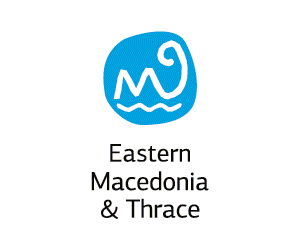Traveler's Guide
East Macedonia & Thrace
Region of East Macedonia & Thrace
The Region of Eastern Macedonia and Thrace occupies the northeastern part of Greece. It borders with Turkey easterly, Bulgaria northern and with the Regional Unit of Serres westerly. Southwest is washed by the Aegean Sea and southeast by the Thracian Sea. It includes the Regional Unities: Drama, Kavala, Xanthi, Rodopi and Evros.
It has a total area of 14.157 thousand hectares and covers the 10.7% of the total area of the country.
Also includes two major islands of Thracian Sea, Thassos and Samothrace.
Crossroad of major sea and land routes by which, for thousands of years, are moving people and goods, ideas and habits to and from the four cardinal points: from the Black Sea and Asia to Western Europe and from North Europe and the Balkans to the Mediterranean and North Africa.
The traces of its history, that start from the Paleolithic season and arrive to our days, are everywhere: caves, rock paintings, forts, temples, theaters, citadels, mines, graves, tumuli, marble quarries, Christian monuments, monasteries and holy places , aqueducts, Islamic monuments, traditional villages, Megara, mansions, tobacco warehouses.
The Region of Eastern Macedonia and Thrace, during the ancient times, was covered by forests at the rate of about 80%, but today this percentage has limited to 55% per area. In its extent there are trackless forests, virgin nature, high mountains, rich flora and fauna, large rivers, lakes and lagoons and an endless coastline with clear blue waters and friendly beaches.
The region is a place of music, dance, feast and ritual. Dionysus and Orpheus never left from this earth. The reversals of nature (winter, spring, etc.) give an opportunity for reversals of another class: masquerading and walking over fires, and outspoken sprees, kidnappings and robberies, all in the context of ritual.
Pamouktsoglou House
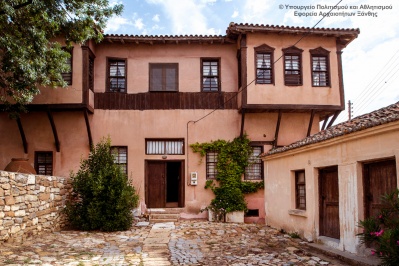 Going up the narrow alleyways of the traditional settlement of Avdira, which lies on the north side of the village over the imposing square, we find the impressive mansions with ...
Going up the narrow alleyways of the traditional settlement of Avdira, which lies on the north side of the village over the imposing square, we find the impressive mansions with ...
Old Town of Xanthi
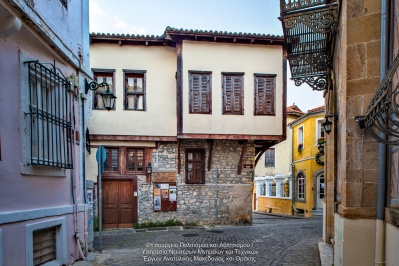 The Old Town of Xanthi is located in the north of Xanthi constituting its historic core and covers an area of 380.000m2. The city is built after 1829. The year ...
The Old Town of Xanthi is located in the north of Xanthi constituting its historic core and covers an area of 380.000m2. The city is built after 1829. The year ...
Roman portico in Agios Charalambos, Maroneia
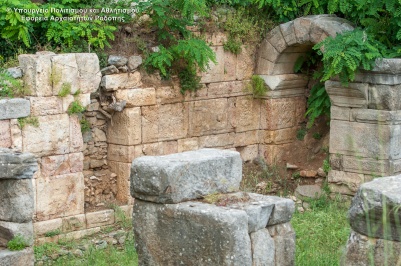 At the end of the road leading from Maroneia the port of Agios Charalambos, is located a monumental Roman marble portico built in the area. This portico was leading to ...
At the end of the road leading from Maroneia the port of Agios Charalambos, is located a monumental Roman marble portico built in the area. This portico was leading to ...
Pew of Paul the Apostle
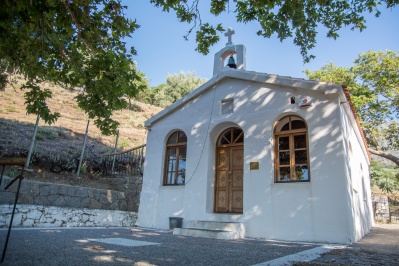 Samothrace was the first European territory that the Apostle Paul was visited. The Pew Apostle Paul is located on the north side of Samothrace in the 7th km of road ...
Samothrace was the first European territory that the Apostle Paul was visited. The Pew Apostle Paul is located on the north side of Samothrace in the 7th km of road ...
Tour at the ruins of old monasteries in Papikio
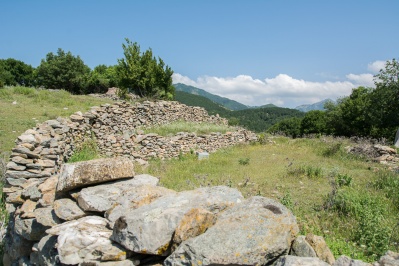 In Papikio mountain and particularly the section of the Rhodope Mountains between the rivers Kompsatos and Traos it had been developed the first Byzantine monastic state. After the raids of ...
In Papikio mountain and particularly the section of the Rhodope Mountains between the rivers Kompsatos and Traos it had been developed the first Byzantine monastic state. After the raids of ...
Kalogeriko
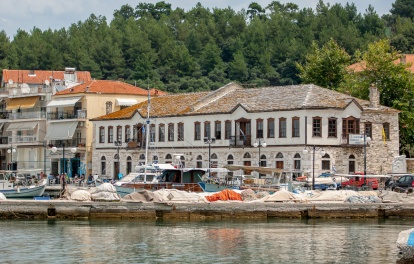 The "Kalogeriko" as it prevailed eventually to be called by locals, is the monastery of Vatopedi on Mount Athos, which was built in the second half of the 19th century ...
The "Kalogeriko" as it prevailed eventually to be called by locals, is the monastery of Vatopedi on Mount Athos, which was built in the second half of the 19th century ...
Valley and Waterfall of Fonias River
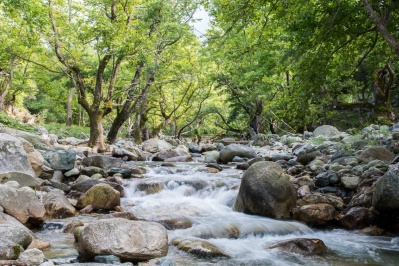 The route for the Cape of Fonias passes through the riparian forest with ancient trees, alders and ferns, and leads to the waterfalls of Fonias. Within dense vegetation and from ...
The route for the Cape of Fonias passes through the riparian forest with ancient trees, alders and ferns, and leads to the waterfalls of Fonias. Within dense vegetation and from ...
Skala Potamia
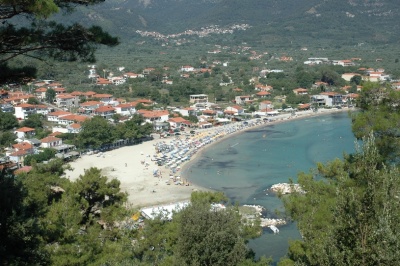 The beach of Skala Potamias is beautiful with crystal clear waters. After your dip in the sea try sun-dried octopus and octopus balls at the taverns of the village.Sources: http://tourism.kavala.gr/el/thassos-to-prasino-nhs... ...
The beach of Skala Potamias is beautiful with crystal clear waters. After your dip in the sea try sun-dried octopus and octopus balls at the taverns of the village.Sources: http://tourism.kavala.gr/el/thassos-to-prasino-nhs... ...
Karyofyto Settlement
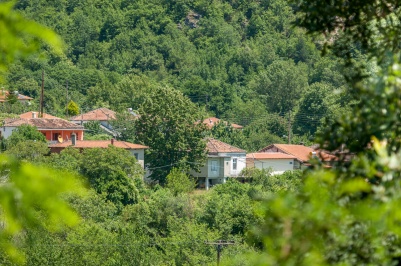 Karyofito is a village in the prefecture of Xanthi, part of the municipality of Stavroupoli and previously named as Kozloutza. It is located 41 kilometers northwest of Xanthi, at an ...
Karyofito is a village in the prefecture of Xanthi, part of the municipality of Stavroupoli and previously named as Kozloutza. It is located 41 kilometers northwest of Xanthi, at an ...
Abdera Settlement
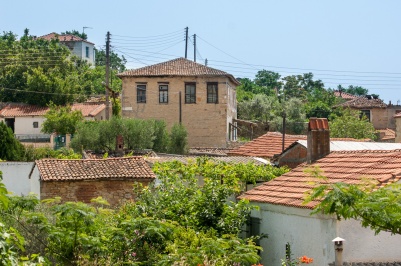 Abdera is located just before the south coast of the Xanthi Prefecture, 20 km away from the city of Xanthi. Today Abdera is north of the famous ancient settlement, but ...
Abdera is located just before the south coast of the Xanthi Prefecture, 20 km away from the city of Xanthi. Today Abdera is north of the famous ancient settlement, but ...






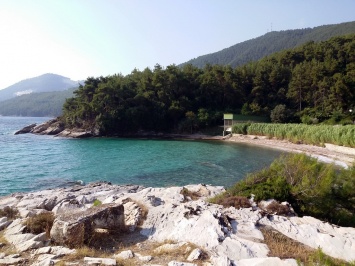 Source: http://thassos.gr
Source: http://thassos.gr
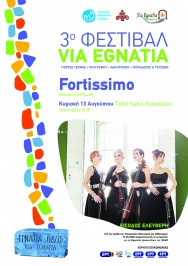 13/08/2017 - 13/08/2017
13/08/2017 - 13/08/2017
